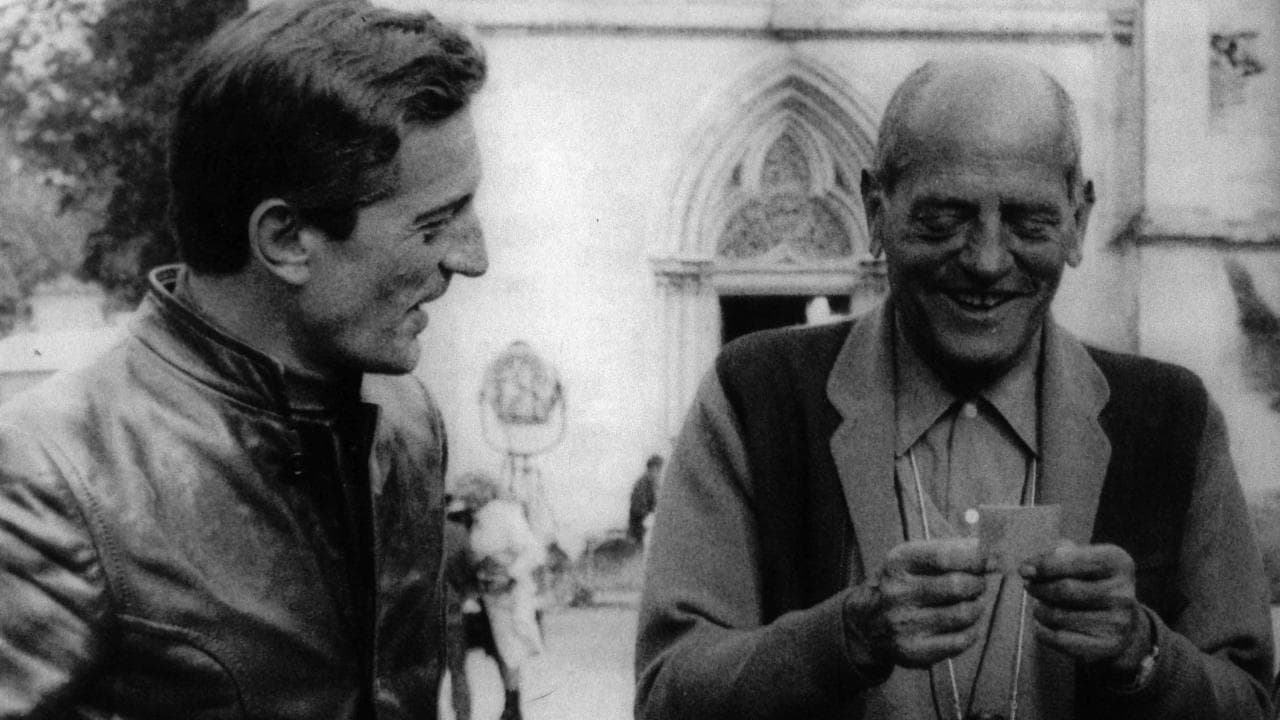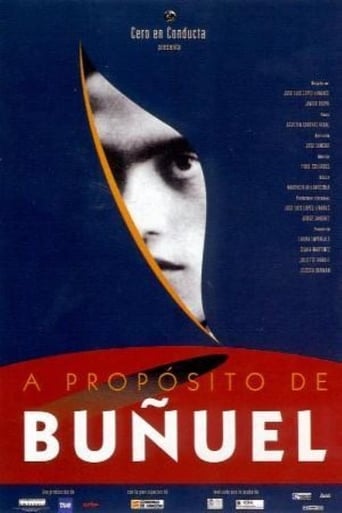StyleSk8r
At first rather annoying in its heavy emphasis on reenactments, this movie ultimately proves fascinating, simply because the complicated, highly dramatic tale it tells still almost defies belief.
rogierr
Different people explain in this fine documentary how Luis Buñuel started to invent surrealist cinematic imagery and why he wanted to shock people and why he despises organized religion, faith and of course certain bourgeoisie. The importance of Toledo (to Jose Bello, Dali, Buñuel and Lorca) is explained and what impact Velazquez, Goya and Cervantes had in Buñuel's films. Also explained is why the acting in his films is always sober and never over-acted (i.e. use of eyebrows and nodding etc.). Although it is in chronological order from birth to death, it somehow does not feel complete. But a documentary can't really fathom ALL essential factors in the life and work of such an icon in cinema in 98 minutes, when 8 minutes are spent on how Buñuel used to drink his Martini's.'I discovered cinema in 1908 as an attraction at the carnival: a simple technical discovery. But it was the invasion of something totally new in our Medieval universe.'More than twenty friends, actors, cinematographers, family and writers are interviewed and there are many excerpts from most of Buñuel's films. Luis Bunuel even has some screen time as he is interviewed (that must be at least 18 years before the making of this documentary). I was disappointed that neither cinematographer Edmond Richard, who shot Bunuel's last three films and Le Proces (Welles, 1963), wasn't interviewed nor Fernando Rey. Another flaw is that Buñuel is made into a hero, while he made mistakes too: e.g. why was it that he never worked with Dali again after l'Age d'or? Wasn't that because of major differences in the visual ideas of Buñuel and Dali? The riot over l'Age d'or is illustrated though. I was delighted to see that the emphasis in this documentary is on Buñuel as a person and on his surrealist freedom. If you like one or more of the films by Buñuel, you will want to see this (twice).9/10

